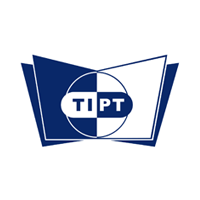 In the pharmaceutical industry, accuracy and attention to detail are important. Focusing on these things is easier with simplicity, yet in the pharmaceutical industry overcomplexity is common, which can lead to important details getting overlooked. However, many companies are trying to address this issue.
In the pharmaceutical industry, accuracy and attention to detail are important. Focusing on these things is easier with simplicity, yet in the pharmaceutical industry overcomplexity is common, which can lead to important details getting overlooked. However, many companies are trying to address this issue.
In fact, 76% of pharmaceutical execs believe that reducing complexity leads to sustainable cost reductions. Read on for some of the ways that overcomplexity harms pharmaceutical companies and what is being done to remedy it.
1. What Students in Pharmaceutical Manufacturing Training Should Know About Overcomplexity’s Origins
Overcomplexity is when a system, organization, structure or process is unnecessarily difficult to analyze, solve or make sense of. In pharmaceutical companies, this is a major issue and hindrance to the industry as a whole. Often, overcomplexity is the byproduct of innovation and progress, which, despite their obvious advantages, can lead to an organization developing too many moving parts.

For example, new forms of collaboration as well as scientific innovation can cause overcomplexity because any time something is added to a process, it becomes more complex. Increasing regulatory scrutiny can also add complexity, as this feedback can focus on symptoms rather than the root of an issue.
2. Organizational Overhead Can Lead to Too Much Complexity
Organizational complexity occurs when too many personnel are added, in particular department heads. After pharmaceutical manufacturing training you will work on teams that can benefit from being lean. Increasing overhead is often done to improve data integrity. For example, if a company notices an issue with data integrity, they often create new roles for overseeing data governance.
Any time personnel are added for oversight, there is a risk of increased complexity at shop floor level. Fortunately, some companies are realizing that the best way to deal with issues of data integrity is by improving data handling within departments themselves, rather than adding new layers of overhead—and complexity.
3. Quality Systems Can Create a Backlog
A number of pharmaceutical sites suffer from a backlog of Corrective and Preventive Actions (CAPAs). CAPAs are in place to improve conformities and quality and they follow the Good Manufacturing Practices you know about from pharmaceutical manufacturing courses. However, many of these sit open until there are too many of them to catch up.
Backlog that is close to 10 percent of the total number of investigations per year points to a serious issue with the company’s system. Some companies are dealing with this backlog by introducing a risk-based, triaged approach. Triaging allows companies to focus on the most urgent deviations and CAPAs, thus reducing this key issue of overcomplexity in the pharmaceutical industry.
4. Pharmaceutical Manufacturing Diploma Grads Should Know What Can Help
Some strategies are being adapted to address the root problems of overcomplexity. Radical simplification, for example, is a way to target what is fundamentally wrong with overly complex organizations and structures. This is a method of continuously improving data and performance that focuses on improving processes.

Cognitive load deduction is another way to reduce complexity, which looks at forms and documents and attempts to reduce the effort used when working with them. In reducing the effort required to perform tasks and fill out forms, more can be accomplished by a team.
Finally, auditors can help reduce complexity by assessing the health of a company’s quality systems, such as assessing how many open CAPAs exist. Understanding these different solutions to overcomplexity could help you excel in your career after your courses.
Are you interested in getting your pharmaceutical manufacturing diploma?
Contact TIPT for more information!
